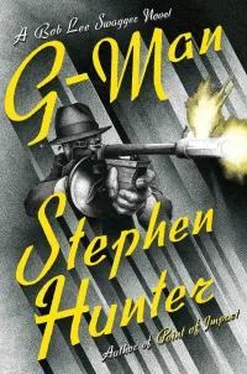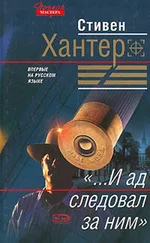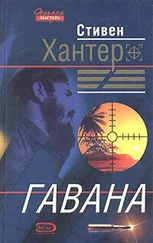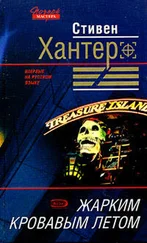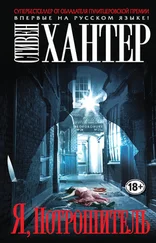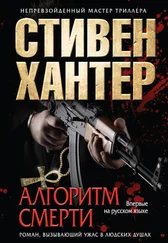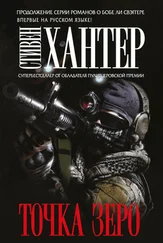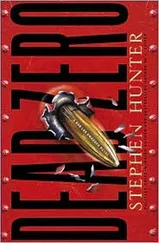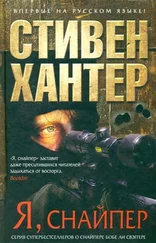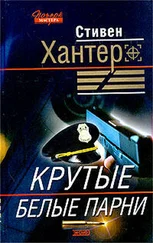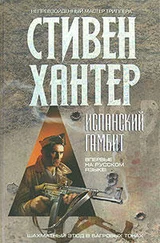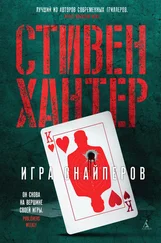Стивен Хантер - G-Man
Здесь есть возможность читать онлайн «Стивен Хантер - G-Man» весь текст электронной книги совершенно бесплатно (целиком полную версию без сокращений). В некоторых случаях можно слушать аудио, скачать через торрент в формате fb2 и присутствует краткое содержание. Жанр: Старинная литература, на английском языке. Описание произведения, (предисловие) а так же отзывы посетителей доступны на портале библиотеки ЛибКат.
- Название:G-Man
- Автор:
- Жанр:
- Год:неизвестен
- ISBN:нет данных
- Рейтинг книги:3 / 5. Голосов: 1
-
Избранное:Добавить в избранное
- Отзывы:
-
Ваша оценка:
- 60
- 1
- 2
- 3
- 4
- 5
G-Man: краткое содержание, описание и аннотация
Предлагаем к чтению аннотацию, описание, краткое содержание или предисловие (зависит от того, что написал сам автор книги «G-Man»). Если вы не нашли необходимую информацию о книге — напишите в комментариях, мы постараемся отыскать её.
G-Man — читать онлайн бесплатно полную книгу (весь текст) целиком
Ниже представлен текст книги, разбитый по страницам. Система сохранения места последней прочитанной страницы, позволяет с удобством читать онлайн бесплатно книгу «G-Man», без необходимости каждый раз заново искать на чём Вы остановились. Поставьте закладку, и сможете в любой момент перейти на страницу, на которой закончили чтение.
Интервал:
Закладка:
“If it don’t start with a 4, I ain’t interested,” he said — much quoted in office lore — when choosing a weapon, and picking the one he did after diddling with all of them, testing for trigger pull, tightness of slide to frame, and some indefinable something he called feel — how could manufactured items such as pistol frames have different feels? they wondered — all these un-self-conscious signifiers conferred upon him a status he had not sought and did not welcome.
First order of business: his long memo to Purvis, carbon to Cowley, on law enforcement firearm training, which argued persuasively, as opposed to successfully, for the elimination of the box concept of the shooting range in favor of a more fluid setup that would emphasize moving in and among targets, shooting on the move and from different angles and positions, snap-shooting against a clock to gauge time, caliber selection (the famous 4 again, as in .45 ACP or .44 Special or .45 Long Colt), reload and clearance drills (mandatory!), dry-fire, dry-fire, dry-fire, and basic first-echelon maintenance skills, not for gunsmithing but for field-expedient emergency clearances. He preached total flexibility, in other words, after the model of a real gunfight as fought by a real gunfighter. Then there was the issue of sighted fire, which he believed in, versus the Division mantra, “the crouch,” which mandated that the agents dip into a position where they were bent forward, the pistol itself thrust forward and down, then tipped up. The Division relied on muscle memory to get the gun on target, and Charles knew that some men have much better muscle memory than others — his own was superb — whereas all had eyes to align sights.
This document was greeted with enthusiasm by Purvis, praised, and a copy put on the bulletin board. It was bucked to Washington, where at least two, and possibly as many as three, people read it to conclusion, but one of them was not the Director and so as an enterprise it was doomed from the start.
Then he spent a long Saturday with Hollis in the arms room, examining each of the office’s weapons, looking for signs of wear, poor maintenance, bent or damaged sights, loose or stripped screws, burrs, over-lubrication or under-lubrication. He showed Hollis how to break each piece down, finding him an eager acolyte with some mechanical aptitude, and once he overcame his fear of the intricate, a skill equal to the cuckoo-clock guts of the Colt .38 revolver.
He worked the long guns too and discovered why young Hollis had been point man on the Little Bohemia debacle. It was that he had a natural feel for the Thompson and had clearly spent much time with it, knowing how to break it down already, how to sight it, what the proper firing position was, and was adroit at fast reloads, a crucial battle skill. Charles guessed that he shot it quite well. Thus, Clegg had placed him in the vanguard of the assault, even though he’d never been in a gunfight before, and thus it was him that had to make the half-second decision in the pitch dark whether to fire on three men getting into a car. His head charged with nonsense about the importance of the raid, the evil of the bandits, the one-in-a-million opportunity in front of the agents, what choice did he have but to fire? He’d fired, the whole thing had gone south, and, given the nature of large organizations, what rolls downhill rolled downhill on Hollis, while Purvis and Clegg stepped as far from the rolling as possible, not that they didn’t get splashed. But in all this, nobody seemed to notice only Hollis had hit his targets while everyone else had shot the holy bejesus out of the lodge and cabins and accomplished nothing but too many holes for tourists to gawk at for the next hundred years.
The issue of the shooting range came up sooner rather than later because Charles forced it. The only range in the city was in the basement of the new Chicago Police Headquarters, on South State at 11th, not a few blocks away, but access to it was a tricky political issue. Trainees for CPF had it every fifth week, full-time, as they ran through their cycles. At all other times it was supposedly open for voluntary fire by all local and federal law enforcement personnel, though few took advantage of the facility. However, that did not stop the officer in charge, a Sergeant O’Malley, from going all Lord of the Manor on it, and turning it into a sort of boys club for fellows out of County Cork, who hung around, kibitzed, and clucked and gossiped but didn’t do much else except use it as a treehouse.
“It’s the Chicago way,” said Purvis. “Those that have, keep. Those that don’t have, cooperate. Meaning: the Irish have, nobody else gets. O’Malley holds the cards, because he knows we’re the new boys, he hasn’t felt us out yet, he’s not sure if we’ll be around awhile or we’re just a flash in the pan. I could write letter after letter to Commissioner Allman, but they’d all get lost, and if I complained, my complaints would get lost. It’s a tough situation. And let me be frank, Sheriff: to prevail, I’d have to use a lot of juice, and I don’t have much juice since Little Bohemia. I’m sure Sam Cowley would tell you the same.”
“I ain’t one for going from boss to boss,” said Charles, earning a smile from Purvis. “Would you mind if I took a crack at this O’Malley on my own? Unofficial-like?”
“I don’t know what you have planned, Sheriff, and I’m not sure I want to. But go ahead. Just don’t get caught.”
So Charles looked into it, then ambled over one afternoon all by his lonesome with a couple boxes of government-issue hardball in his suit pockets. It was a pleasant summer day in Chicago, with a cooling wind blowing in off the lake, and the eight-block walk took him straight down State, past the big department stores, under the roar of the elevated trains that formed the south side of the Loop, past a couple of burly houses, and finally to the new building, which looked like a brick set on its end. It was thirteen stories of rectitude, with a couple stories of fraudulent frill plastered on the bottom two stories to disguise the grim utility of the place. He came into the lobby and took an elevator down one story.
Nothing new here. Just a shooting range behind a sign-in desk, the thumps and bangs of cops on remedial missions echoing beyond the soundproof walls. He showed his badge, was assigned a lane, stuffed his ears with cotton — a few others did so, but it was not required — and stepped into familiar damp cement darkness, the smell of burned powder, the litter of spent casings on the floor, and the long hallway of booths. He went to his assigned booth, fetched a target, and reeled it out to twenty-five yards, which was the range’s ultimate challenge. He set his pistol down, removed the three loaded magazines he carried on his belt, placed the two GI boxes on the shelf before him. It was one of those absurd silhouettes where the guy just stands there, all in black to show up better in the raw light of the range, in a kind of rigid please-kill-me posture. It had nothing to do with gunfights.
This was his first time with the new Colt Commercial he had signed out of the inventory. It felt like all the other Colts he’d fired, and it was nice and tight, with no wobble to the slide as they sometimes had, with a dull shine slightly incandescent in the bright light. He fired one-handed, off the ninety-degree orientation to the target that was the consensus style of police gunwork, because he didn’t want to showboat.
In short order he had blown the black centers out of the silhouettes. The pistol shot well enough, though when he had time, he’d like to take a file to it, knowing all manner of little tricks that could be applied to Mr. Browning’s geometry within the frame to make a good pistol into a superb one. He left twenty-nine rounds in the second box and carefully threaded seven apiece into his three carry mags and the mag that went in the pistol. That one he placed in the pistol, jacked a round into the chamber, applied the safety, removed the magazine and replaced the round with the one left over, and slammed it into the gun, for an eight-round combat load on the first draw-and-shoot. He slid the cocked and locked pistol back in its elaborately carved holster tight under his left arm, turned and discovered that his shooting had drawn an audience. At least ten cops stood well back, clearly astonished at the marksmanship, the likes of which had been rarely seen down here.
Читать дальшеИнтервал:
Закладка:
Похожие книги на «G-Man»
Представляем Вашему вниманию похожие книги на «G-Man» списком для выбора. Мы отобрали схожую по названию и смыслу литературу в надежде предоставить читателям больше вариантов отыскать новые, интересные, ещё непрочитанные произведения.
Обсуждение, отзывы о книге «G-Man» и просто собственные мнения читателей. Оставьте ваши комментарии, напишите, что Вы думаете о произведении, его смысле или главных героях. Укажите что конкретно понравилось, а что нет, и почему Вы так считаете.
